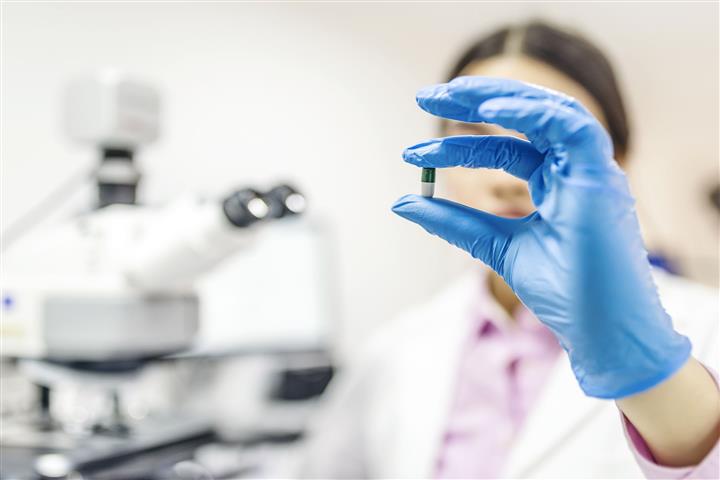 Chinese Biotech Firms Turn the Page on Dismal 2022 by Cranking Out Deals
Chinese Biotech Firms Turn the Page on Dismal 2022 by Cranking Out Deals(Yicai Global) Jan. 31 -- Several Chinese biotech companies have started a new year by staging reversals of stock price plunges after revealing scientific breakthroughs and new overseas partnerships, which may eventually materialize in profits.
Zai Lab [NASDAQ: ZLAB], which develops medicines for cancer and autoimmune diseases, has surged nearly 39 percent in New York over the past month. Meanwhile, the Shanghai-based firm's H-shares [HK: 9688] have jumped over 27 percent in Hong Kong. Still, recovery has been slow as both stocks have recorded double-digit declines in the past year.
Hutchmed China [HK: 0013] has risen 14 percent in Hong Kong in a month while its US-listed shares [NASDAQ: HCM] climbed 8 percent. However, the two stocks are down over 30 percent in the past 12 months.
"Market confidence is returning, and achievements that Hutchmed and others have made show Chinese firms' innovation ability," Brad Loncar, founder of biomedicine fund Loncar Investments, told Yicai Global. Hutchmed recently gained a payment of USD400 million which is quite considerable in the current capital market environment, Loncar added.
Last week, a unit of Hutchmed granted an exclusive license of a new drug to a subsidiary of Japanese multinational Takeda Pharmaceutical, gaining USD400 million upfront and expecting to have USD1.1 billion of further milestone payments.
There has been other good news. In December, China's Akeso licensed US company Summit Therapeutics to commercialize its anti-tumor medicine called Ivonescimab in certain overseas markets, marking a new deal record for a Chinese innovative drug of up to USD5 billion.
Offshore Capital Appeal
It is becoming easier to get capital abroad. Drug authorization is a relatively simple form of partnership, Dr. Chen Zhui, co-founder and chief science officer of Abbisko, told Yicai Global. This may further expand to early-stage capital cooperation for joint projects, he added.
Abbisko is one of the recent bearers of good news as the Shanghai-based firm said yesterday that the US Food and Drug Administration has granted its Pimicotinib (ABSK021), designed to treat tenosynovial giant cell tumors that tend to form around joints, a breakthrough therapy designation, indicating preliminary efficacy.
Abbisko has been a magnet for overseas capital. Before going public in Hong Kong in October 2021, the firm brought in Lilly Asia Ventures and Blackrock as cornerstone investors. A year ago, a unit of the Chinese company signed a global cooperation licensing deal with Eli Lilly and Co. to jointly develop small molecule drugs. Before that, it teamed up with AstraZeneca on anti-tumor treatments.
Large multinationals increasingly rely on external research and development after disbanding in-house research teams to save costs, CSO Chen said. "Some multinational giants will come to China to find cooperation opportunities as they may be way less efficient than Chinese firms regarding development."
Great Deals But No Gains
But turning profitable remains a challenge for Chinese firms. More than 40 Chinese biotech startups have landed on the Hong Kong Stock Exchange because of special listing rules since 2018 but none of them has turned a profit yet.
Last year, Hong Kong-listed biotech firms' market caps slumped by 30 percent on average. As a result, more than three-quarters of them ended 2022 lower than their initial public offering price. "The market already showed us that investors may need to be more cautious on these firms' business prospects," said Liu Yunting, deputy partner at Bain & Co.
The poor performance is partly about product prices. The difference in clients' ability to pay is the biggest challenge facing Chinese biotech startups, Loncar said, adding that "the highest drug prices worldwide is the primary cause behind the thriving US biotech industry." This has increased the necessity of partnerships between Chinese and offshore biotech startups, he concluded.
Editors: Tang Shihua, Emmi Laine, Xiao Yi